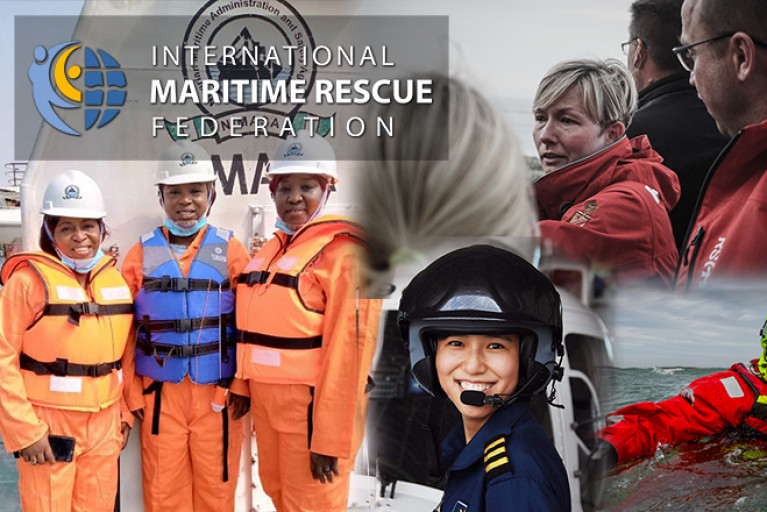Displaying items by tag: IMRF results
The International Maritime Rescue Federation (IMRF) to mark International Women's Day, has revealed its results of the first survey to examine the representation of women across the maritime search and rescue (SAR) sector.
The #WomenInSAR survey, which was supported by Trinity House, attracted more than 1600 participants from women and men in 48 different countries. The research sought to explore the challenges and barriers faced by women in maritime SAR, along with their personal aims, any experiences of discrimination, and factors affecting recruitment and retention.
Theresa Crossley, CEO, IMRF said: “The theme for International Women’s Day this year is ‘choose to challenge’. It’s remarkably appropriate, as most of the women and men who completed the survey felt that one of the biggest barriers to more women entering maritime SAR, was the perception that it’s a man’s world.
“Male dominance remains a fact in the maritime sector in general and maritime SAR is no different. This can have an indirect discriminatory effect, for example in terms of the facilities and equipment provided. Many of the respondents said that ‘you need to see it to be it’ - there are still not enough women in senior roles, or not enough pictures of women in SAR recruitment, training and promotional materials – perpetuating the myth that SAR is just for men. As one respondent said: ‘We don’t need men or women - we just need crew.’”
Captain Ian McNaught, Deputy Master of Trinity House added: “Trinity House is a charity dedicated to safeguarding shipping and seafarers and we have been providing education, support and welfare to the seafaring community for more than 500 years. Women and men working in maritime search and rescue save the lives of those in trouble at sea, providing a vital service. In today’s world, it is only right that women should be equally represented across all roles and we are proud to support this initiative.”
For the majority of women who responded to the survey, the reasons for becoming involved in SAR were generally the same as for male respondents and a significant majority of women questioned did not report any experience of direct gender discrimination. However, a significant minority of women respondents reported that issues related to both direct, or indirect, gender discrimination were among the most challenging aspects of their SAR work. Quite a few women still felt the need to outperform men to be taken seriously.
The IMRF launched its #WomenInSAR initiative in June 2019, to increase the representation of women in maritime SAR and provide support for women and girls involved in the sector. The results of this survey, the first of its kind, will help the IMRF to focus its efforts on improving awareness of, and access to, the opportunities available to women in maritime SAR.
The IMRF is now planning a #WomenInSAR STEM event to highlight the opportunities open to women, showcasing international female trailblazers and intends to introduce a mentoring scheme for women in SAR. The organisation is also calling for nominations to be submitted for the IMRF Awards, specifically the #WomenInSAR Award which is presented to someone who has made a major contribution to improving opportunities for women in the sector.
Theresa Crossley concludes: “Over and over again, it’s been proved that organisations with an equal balance of men and women are more successful. Maritime SAR has been traditionally a male preserve. Although much has changed over recent years, we’ve still got a way to go. Gender diversity makes sense on every level – we need to make it happen. We’re ‘choosing to challenge’ the perceptions and aiming for equality.”
The report was launched via an online webinar open to anyone in the industry, and is free to download from the IMRF website here.
The IMRF as the only maritime SAR organisation with consultative status at the International Maritime Organization (IMO), will be sharing the results with the IMO in support of its Women in Maritime initiative.
























































